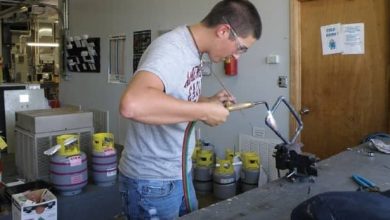How hard is Pharmacy school ?

Pharmacy is a large subject of study. There are numerous job opportunities in pharmacy. As the demand for pharmacists grows, an increasing number of people are enrolling in this program. If you want to be a pharmacist, you’ll need to put in a lot of effort and get valuable experience. In a pharmacy, a pharmacist is in charge of a variety of tasks. We’ll answer the question: How hard is pharmacy school?. We’ve answered a variety of questions that students nowadays frequently ask.
Is Pharmacy School a Stressful Experience?
When you don’t have a strategy and don’t keep track of what you’re doing, pharmacy school might be unpleasant. A pharmacy school’s learning environment would be distinct from that of any other pharmacy school. Because everyone has different strengths, weaknesses, likes, dislikes, and attributes, pharmacy school can be difficult for some people but not for others.
Related Post:Easiest PA Schools to Get into
If you have a strong interest in this sector and enjoy learning new things about the pharmaceutical industry, this should not be a difficult task for you. Pharmacy school is a difficult environment for the majority of students. The following are the reasons for this:
Maintaining physical and mental well-being
It was a challenge to not disregard my health while in pharmacy school, and by health I mean all elements of it – mental, physical, emotional, spiritual, and so on. Knowing your body is crucial, and your brain will not work well if the rest of your body is in disarray.
It was crucial for me to figure out how much sleep deprivation, caffeine/junk food consumption, and studying I could do before taking a break. When I consider how long it took me to start going to the gym at school and how long it took me to learn how to cook, I shake my head!
Even when faced with some of life’s most difficult situations, make it a point to take time for yourself, regardless of your time constraints.
An ineffective rotation
For introductory and advanced pharmacy practice experiences, most pharmacy schools use a lottery system. You may not always obtain the first pick for the internship you want because it is a lottery.
While I loved all of my IPPEs and APPEs, I couldn’t claim they were all my first choices. I am a major believer in the “you get out what you put in” principle, and I believe that going into any internship with a positive mindset and a few goals may make all the difference.
Don’t get me wrong: being saddled with an IPPE or APPE that you don’t want is aggravating. So, if you find yourself dreading the start of an internship you don’t want, try to make the best of it by using it as a learning opportunity to help you figure out/confirm your career goals. You’ll never have any regrets if you try anything once. After all, you’re only going to be there for a few weeks.
Time management.
Unfortunately, there are only 24 hours in a day, and when lectures and studying consume a considerable portion of that time, time management can be a major difficulty for pharmacy students. During pharmacy school, I had the most difficulty with this.
It’s not uncommon for people to suffer with this. Combining it with the various extracurricular activities that pharmacy students participate in can make it even more difficult. Pharmacy students frequently participate in student groups, have family responsibilities, work part-time, and/or engage in research, division/intramural sports, and other extracurricular activities.
Staying organized and being as practical with your time as possible might help you avoid becoming overburdened. I propose utilizing a calendar and filling it with as much information as possible. For all of my examinations, practicals, meetings, shifts, bills, and due dates, I used Apple Calendar. People who use Asana, Google Calendar, and pen and paper agendas are among my acquaintances.
While it is sometimes easier said than done, good time management is crucial for pharmacy students.
Heavy workload
The shift from undergraduate to pharmacy courses has been the most difficult academic adjustment of my 20 years of education. Pharmaceutics, Pharmaceutics Recitation, Pharmaceutics Lab, Immunology, Pharmacy Practice in Health Care, Pharmacy Practice in Health Care Recitation, Pharmacology, and Medicinal Chemistry made up my first semester of pharmacy school. This course load would typically consist of 1-3 quizzes/exams per week, not to mention other assignments, lab practicals, and presentations.
If you’ve been admitted into pharmacy school, you’ve probably maintained relatively excellent grades in undergraduate classes, occasionally (or often) without putting out your best effort. My pharmacy classes, in terms of both didactics and exams, had little relation to any other courses I had previously taken.
It will be easier to transition if you have a clear awareness of your learning style and study habits, which may differ and/or change depending on the course. Find what works for you as soon as possible, and don’t be hesitant to get help if you’re having trouble.
Lack of planning.
The greatest method to lessen your study stress is to plan ahead. Make a schedule for yourself and keep track of your assignments and study. You will not be stressed in this manner.
Is There a Demand for Pharmacists?
People will remark that pharmacy isn’t what it used to be, and that there are now too many pharmacists. However, this is not the case. Pharmacists are still in high demand. Pharmacy is a field that is constantly evolving. We can’t say that there is a high demand for pharmacists in all 50 states. There is a greater demand for pharmacists in some sections of the country than in others.
According to estimates, there were 314,300 pharmacy positions available in 2018. Pharmacists are still in high demand. Many pharmacists in the market would have you believe that pharmacists are in short supply and that they are unable to find work. If you have completed your pharmacy education but are having trouble finding work, your job search location could be one of the factors preventing you from getting a pharmacist position.
How Long Does It Take to Earn a Pharmacy Degree?
To become a pharmacist, you must put in a lot of effort and hard work. You must do it one step at a time. First and foremost, you must obtain a bachelor’s degree. After earning a bachelor’s degree, you must pursue a pharmacy degree, often known as a PharmD or Doctor of Pharmacy degree. You must have completed at least two years of undergraduate studies in order to participate in the Pharmacy degree program (Doctor of Pharmacy). A four-year pharmacy degree is required. Many schools also provide pharmaceutical programs for children aged 0 to 6. From one pharmacy school to the next, the pharmacy program will be different. However, most institutions typically offer 2-4 pharmacy majors.
Four years may seem like a long time to some. You might be wondering, “Can someone complete a pharmacy degree early?” The answer is no. Nothing can be skipped or completed early. It is critical that you carefully follow all of the stages in order to become a professional and licensed pharmacist. After finishing undergraduate courses, it takes four years to earn a bachelor’s degree in pharmacy.
What Does It Take to Become a Pharmacist?
If you want to be a pharmacist, you must put in a lot of effort and go through all of the necessary steps. A high-level formal education degree is not required to become a pharmacy technician; nevertheless, a formal education is required to become a pharmacist.
Related Post:Easiest Dental Schools to get into
First and foremost, you must hold a Doctor of Pharmacy (PharmD) degree to work as a pharmacist. You must first get an undergraduate degree before applying to the PharmD program. A two- to three-year undergraduate degree is possible. Students must take the PCAT after completing their undergraduate pharmacy program (Pharmacy College Admission Test). The Pharmacy College Admission Test (PCAT) is an entrance exam for those interested in pursuing a PharmD degree.
The exam is divided into seven sections that assess writing skill, linguistic ability, reading comprehension, quantitative ability, biological knowledge, and chemical knowledge. You must also complete a certain number of hours of clinical training while in the pharmacy program. Hospitals, communities, and compounding pharmacies are among the places where clinical training takes place.
Pharmacists must also pass a licensing examination. It is required of all pharmacists in all states to earn a license. Completing the PharmD curriculum and passing two licensure examinations, NAPLEX (North American Pharmacist Licensing Exam) and MPJE, are required for licensure (Multi-State PharmacyJurisprudence Exam).
How Difficult Is It to Get Accepted to Pharmacy School?
There are numerous factors that influence this. It depends on the method you wish to employ, as different pharmacy schools have different methods. Let’s imagine that 2+4 programs face more competition than 0+6 programs. The applicant is guaranteed entrance to the graduating program with a 0+6 program.
Depending on the pharmacy school you choose, you may be able to enroll in 2+4, 0-6, or any other pharmacy program. Let’s look at the distinctions between the three. You can complete all six years of pharmacy school without taking the PCAT if you enroll in the 0-6 pharmacy program (Pharmacy College Admission Test). The first two years of a 2+4 pharmacy school are pre-professional years, during which you must finish all prerequisites.
Related Post:Tuition Free Medical Schools
You must formally apply to pharmacy school after completing the two-year program. You must take the PCAT as part of the 2+4 pharmacy program and compete against other applicants. Pharmacy schools currently offer 3+3 and 3+4 pharmacy programs in addition to 2+4 and 0-6 pharmacy programs. You must first determine which pharmacy program is best for you before applying.
How Do I Obtain A Pharmacist’s License?
The most important aspect of the pharmacy is obtaining a license. Until you obtain pharmacist licensing, you are not a licensed pharmacist. In order to work as a pharmacist in the United States, one must obtain a Doctor of Pharmacy (PharmD) from a school or college that is accredited by the Accreditation Council for Pharmacy Education (ACPE) and pass the NAPLEX. In the United States, the pharmacy licensure exam is known as NAPLEX (North American Pharmacist License Exam).
The National Association of Boards of Pharmacy created the NAPLEX (NABP). It is a computer-based exam that assesses your knowledge and abilities in the field of pharmacy. This is the most important factor in determining a candidate’s ability and competencies for pharmacist licensing.
You must adequately prepare for the NAPLEX licensure exam in order to pass it. Pre-NAPLEX can help you prepare for it. It helps you prepare for the NAPLEX experience and offers you an idea of the types of questions you’ll be asked. There are 100 questions in the pre-NAPLEX exam, and it takes 140 minutes to complete. The pre-NAPLEX is only used to prepare for the main exam. The pre-exam scores you achieve will not be used in the main exam.
Is it true that pharmacy is more difficult than medicine?
You could be curious as to whether pharmacy is more difficult than medical. If you want to be a pharmacist or a doctor, you shouldn’t be concerned about the difficulty of the coursework. If you’re really interested in pharmacy, don’t worry about the difficulty level. The following is the response to your query:
Essentially, both pharmacy and medicine are extremely difficult jobs, so you must choose one that you are truly passionate about. You must not be choosing a field solely because it will increase your earnings. Medical school takes longer to complete than pharmacy school, making it more difficult.
Medical school is only four years long, but residency takes another three to seven years before you can practice medicine. Pharmacy, on the other hand, necessitates two years of undergraduate curriculum followed by four years of pharmacy school (Doctor of Pharmacy).
Pharmacy and medicine are both demanding professions that necessitate a great deal of attention and concentration. To succeed and become a pharmacist, you must be extremely conscientious about your education. You will be studying for lengthy periods of time in pharmacy school, and you must be proficient in science and math.
Conclusion
Everyone has a different opinion on whether or not becoming a pharmacist is difficult. However, for the vast majority of individuals, it is quite difficult. You must work extremely hard and be self-disciplined if you want to become a pharmacist. There are no fast or quick routes to becoming a pharmacist.
You must complete all phases, from enrolling in an undergraduate study through obtaining pharmacist licensing and employment. Managing your studies and employment will be easier if you develop a planner and stick to it. When you study hard and finish your education, you will be able to reap the rewards of becoming a pharmacist.









